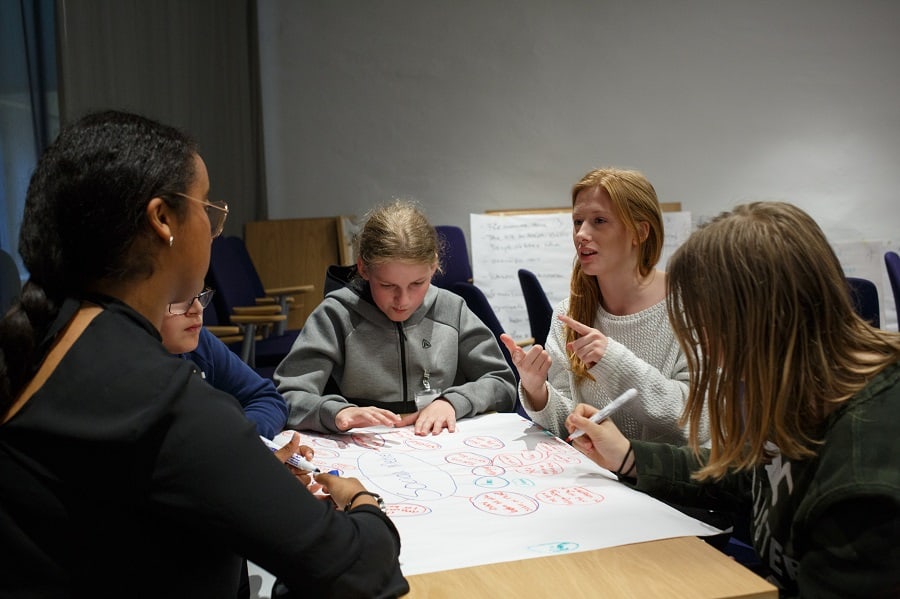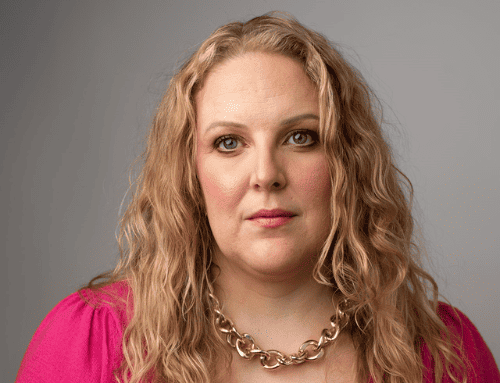In a few weeks, thousands of college and university students will flood campuses across Canada. They will be preparing to live in residence, attend frosh week, and make new friends.
Young Canadians are more likely to experience sexual assault, and young women and girls under 25 continue to have the highest rates of police-reported sexual assault before and after #MeToo.
Sexual assault can have a profound and lasting impact on women’s lives.
“I’m still afraid of the dark. I’m still haunted by what happened,” said a student and sexual assault survivor from York University in a victim-impact statement, more than 2 years after the assault happened.
Research suggests that first-year students are at higher risk of experiencing sexual assault and they may be unaware of the supports and services available at their post-secondary institutions.
Colleges and universities across Canada are working to change that.
“We’re trying to create a culture shift where consent and sexual violence are talked about [while] also recognizing that social change doesn’t happen overnight,” says Jennifer Flood, the Sexual Violence Prevention and Education Coordinator at Humber College. “And the more I work with students, I’m seeing that change.”
She’s also focusing on education and raising awareness through a new Federal Framework to address gender-based violence at post-secondary institutions.
Awareness is growing
The good news, she said, is that post-secondary students in this generation are aware of the issues surrounding sexual violence, or have at least heard of the terms sexual violence and consent. Flood is also encouraged to see more students showing interest in taking part in the school’s prevention initiatives.
“I’m always surprised, in a good way, to see the [number] of students that care and want to get involved and make a difference, whether they’ve been impacted by sexual violence or not.”
At Humber, Flood developed the Consent Peer Education Program , which engages work-study students to educate their peers about consent, as well as raise awareness about the school’s Sexual Assault and Sexual Violence Policy.
“We know that peer-to-peer learning is really powerful,” she said.
#MeToo encouraged participation
Flood said the #MeToo Movement has increased Humber students’ interest in consent education and sexual violence prevention. Many students want to join the conversation, attend prevention initiatives and become consent peer educators.
“I would say, post-#MeToo, that really got the conversation going and we had a flood of applications come in.”
The peer educators work with the Humber community to build a culture of consent. They act as role models on campus, facilitate workshops about consent, sexual violence and healthy relationships, and maintain the program’s digital presence on social media.
Along with peer consent educators, Flood facilitates the Bringing in the Bystander Program , which has trained over 2,000 students and 300 faculty[/animate-link] on how to safely intervene[/animate-link] when they come across sexual violence.
Flood has also seen an increase in number of faculty requests to teach the bystander intervention workshop during classroom time. The two-hour workshop consists of discussion on rape culture and consent, an empathy exercise and direct and indirect bystander intervention strategies.
What’s happening this fall
For students attending Humber in the fall, there are new initiatives to raise awareness. During welcome week, the school will host an exhibition about consent, healthy relationships, and sexual violence. Humber will also take part in #IBelieveYou day on September 18th, a social media campaign.
The school will also host its annual Take Back the Night March on September 26th with the theme “Your Body, Your Mind, Your Time.”
And Humber is working with local community agencies to support survivors of sexual assault. They recently held a roundtable discussion on campus to discuss how the school and external partners can work on best practices and provide resources to students.
“We really worked to create that community, so that we can share resources, and eventually build and create stronger pathways for survivors and all those impacted by sexual violence,” Flood said.
New Framework aims to address gaps
She acknowledged, however, that more work needs to be done to educate students about consent and sexual violence. Addressing that need is part of her work on the advisory committee for the Federal Government’s Framework to Prevent and Address Gender-Based Violence at Post-Secondary Institutions.
“I think that’s a gap for all institutions. We do have a lot of work to do to explain and disseminate information to students in innovative ways,” she said, in response to a 2019 provincial survey finding that more than half of Ontario post-secondary students experience sexual harassment.
She is helping to develop the education chapter of the Framework to fill this knowledge gap. The Framework will guide post-secondary institutions with resources and the assistance they need to update their sexual violence policies and plans.
“This is the starting point, so we’re excited to see it roll out and be used as an advocacy tool to say to your institution and to the government that we need more funding and more resources,” she said. “I also hope that from reading the framework, people are able to see the value in having trauma-informed and culturally grounded programming to ensure that we are putting survivors and those impacted by gender-based violence in the centre of these conversations.”
Learn More:
- Campus Sexual Violence and #MeToo: Q&A with Bailey Reid
- Read our fact sheet on the #MeToo movement in Canada.
- The Warning Signs of an Abusive Relationship
Take Action:
Sign up for our e-newsletter to have our latest stories and resources sent to your inbox. Follow us on Facebook and Twitter to join a national conversation about empowering girls.







